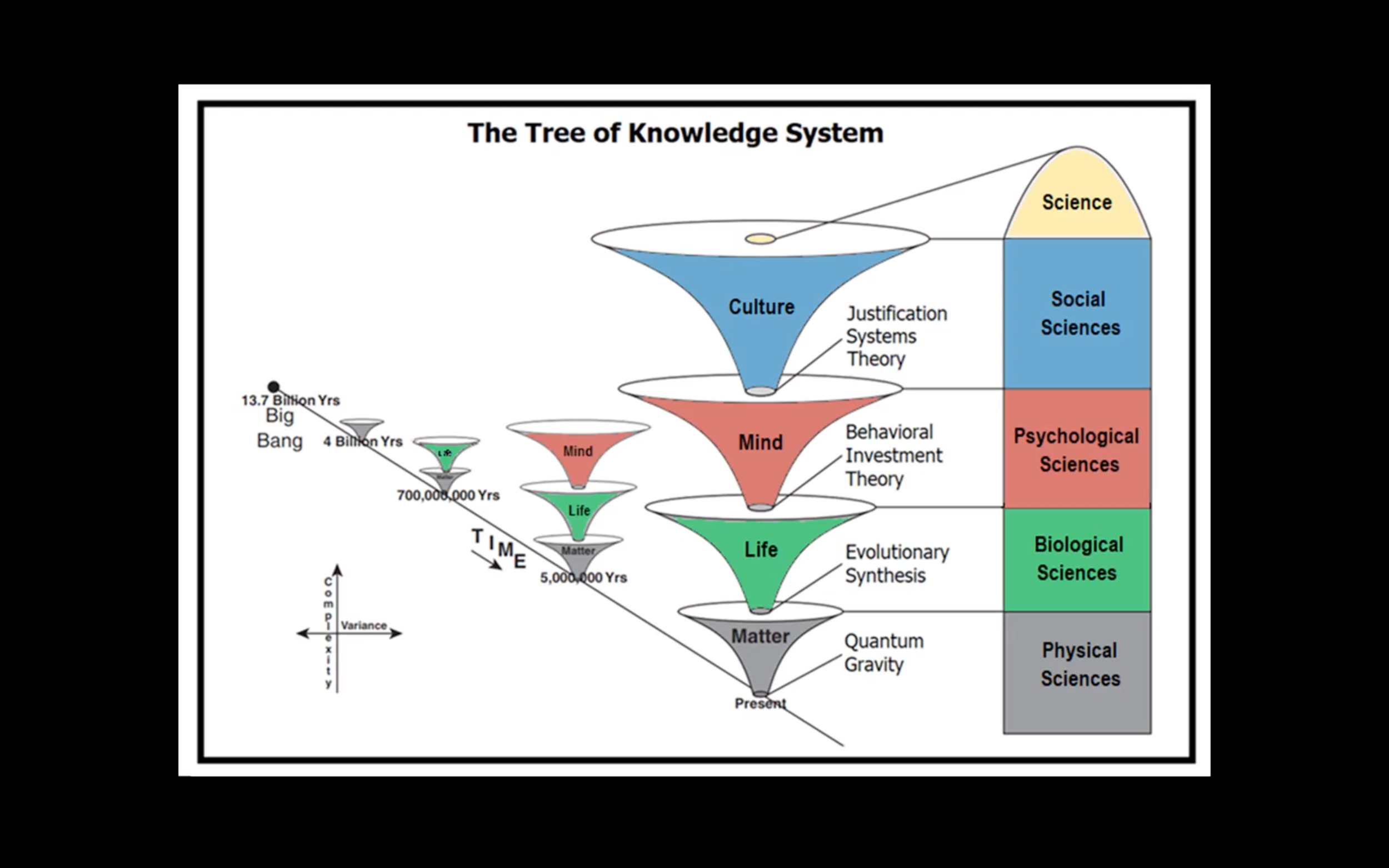From Matter to Life and Mind to Culture
Cosmologist and Theoretical Physicist Stephon Alexander, author of The Jazz of Physics
In a common jazz set, the musicians will play songs with different tempos, moods, and grooves. Such variation helps them and the audience maintain interest. We’ll apply a similar approach for our blog posts, with some much briefer than, say, the excerpts last week from Nick Jankel’s Now Lead the Change.
This post is an example.
The image above, created by my friend and colleague, Dr. Gregg Henriques, is a foundation for a five-part series, Body and Soul: The Mind of Culture, that begins today, Feb. 1st. It’s from his Big History meta-theory, the Tree of Knowledge system, and grounds our first conversation, titled “From Matter to Life to Mind to Culture,” from 5:30-7:00 pm ET.
Each guest will discuss the story of their area of speciality: Stephon Alexander (physics), Brandon Ogbunu (evolutionary biology), Gregg Henriques (psychology), and Greg Thomas (culture).
Why This Conversation series?
I teamed up with Dr. Henriques to gather thought leaders in a range of fields for conversations to confront the crisis that we face in meaning and values. Modern science, for instance, is the source of the greatest technological advances during and since the Industrial Age. Yet the dominance of science and materialism has greatly decreased dependence, in the West, on narratives and systems of meaning such as myth and religion.
This is a key dimension of the current meaning crisis.
In this first session, the hard sciences (physics and biology), with their emphasis on objective, third-person description and analysis, will engage in dialogue with disciplines of mind and culture, located in subjective (first-person) and intersubjective (second-person) dimensions of human reality. In the Academy, specialization in either the hard sciences or the “soft” sciences and humanities too often precludes public dialogue across disciplines. Rarely do physicists engage in public conversations with musicians; rarely are scholars in literature brought together with evolutionary biologists.
Such divergent fragmentation in domains of knowledge is yet another aspect of the meaning crisis.
We say: to hell with that status quo, found in universities and the mainstream media. With the Body and Soul: The Mind of Culture series we’re striving for consilience, areas of convergence and agreement across fields, discovered through inquiry and facilitation of democratic dialogue, among people deeply versed in specialties yet sharing common concerns and aspirations for humanity, also sharing skillful means and good intention, with an openness to innovation and the new, as happens in the flow of jazz improvisation and in the free-wheeling play of professional basketball.
What Types of Questions?
In our dialogue today and in succeeding Mondays in February, we will discuss issues such as:
Whether the cosmos and the universe is simply dead matter hurtling through space with no meaning, or, rather, is the cosmos and nature alive? The answers to these questions are fundamental to our understanding of ourselves in the Anthropocene, the geological period of human impact on the environment.
What are the lessons of evolution that impact upon our understanding of ourselves as human beings? Since the Darwinian revolution in biology, the very concept of evolution has fundamentally influenced our understanding of our past as well as our future potential.
Can what Gregg Henriques calls MENS (Modern Empirical Natural Science) knowledge can become a source and orientation for wisdom, not only objective facts and objective reality?
How can we practically use the latest findings in the sciences of mind, cognition, emotions, and neuroscience?
What role can and does culture play in our self-understanding and flourishing?
What are the mindsets and worldviews needed to make it through these perilous times, this pivotal period as momentous as any shift in human history? [See this story for more details.]
These are a just a few of the questions that we’ll dive into over the course of the series.
Consider joining us. Click the poster to register.




